This colorful faience (tin-glazed) earthenware plate was made in north-eastern France in the early 1800s. The bold floral decoration is rendered in polychrome enamels, attributed to small pottery workshops in the town of Les Islettes in the Lorraine region. The plate measures 12 inches in diameter.
Earthenware is less durable than porcelain and stoneware so it is not uncommon to find tin-glazed plates from this period with early repairs. After the plate broke, a restorer reunited the two pieces by drilling small holes straight through the surface, lacing a small piece of sturdy wire through the holes, and twisting the ends together. Putty or a bonding cement was added to fill the gaps in the holes. Sometimes multiple strands of thin brass wire were used instead of one piece of heavier wire. Other popular types of repairs in the region include large staples and rivets, also found throughout the world.
My high school French teacher found this plate in Belgium about 6 years ago and knew I would give it a good home. Thanks Marianne for your keen eye!
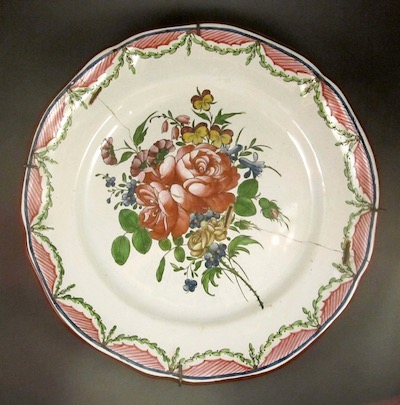
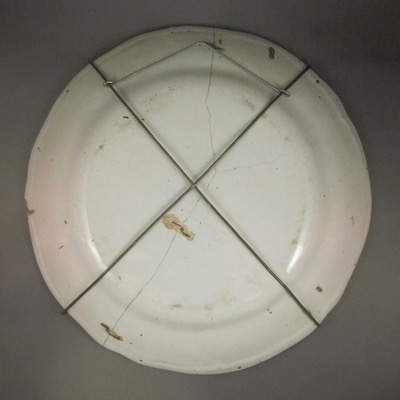
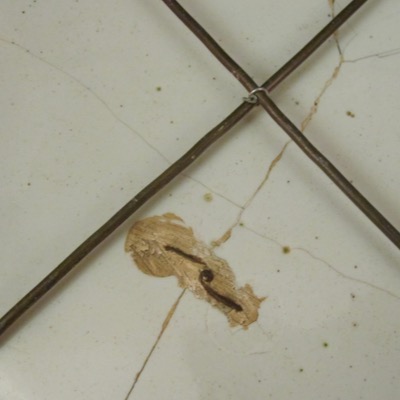
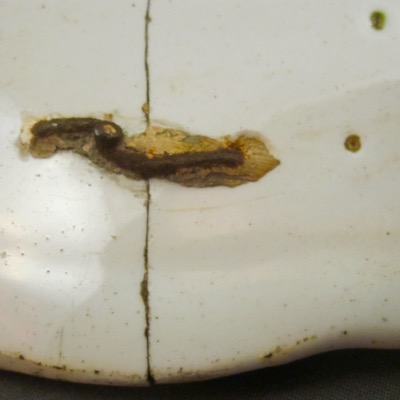
Many examples of plates similar to mine are on view at the Seisaam Museum in north-east France.
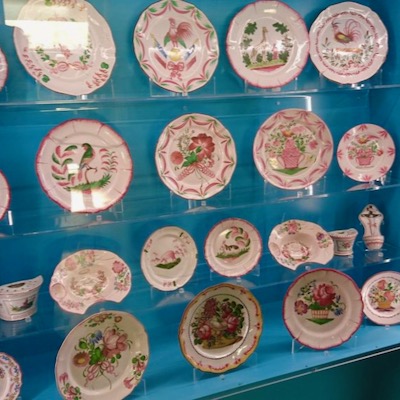
Photo courtesy of Seisaam Museum
Tags: earthenware, French, pottery, staples/rivets, tin-glaze, wire